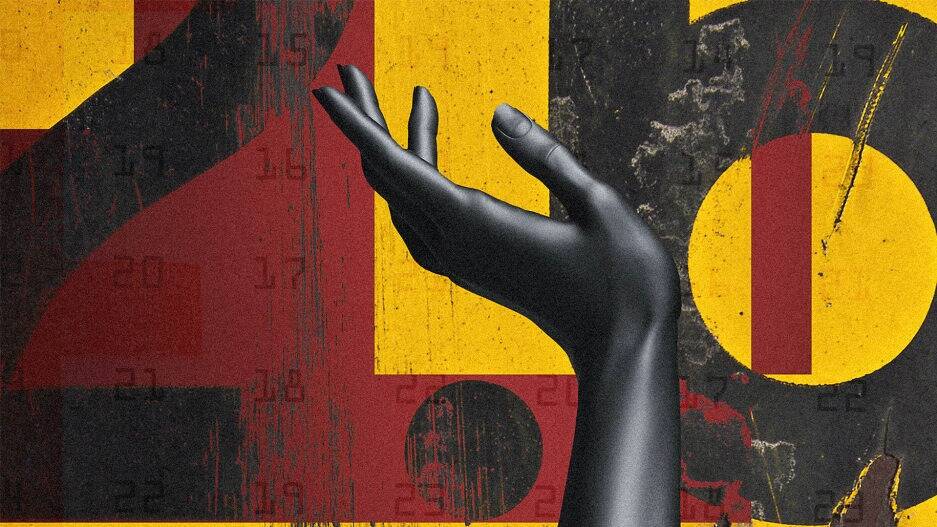- | 8:00 am
How LinkedIn Learning and digital certificates are impacting the job application process
Workers and employers are increasingly invested in digital credentials.

Badges of honor are not new. But for the last couple of years, platforms like edX and Coursera have changed what it means to earn one.
Today, applicants can earn digital certificates or “badges” through online courses to signal to employers that they are invested in lifelong learning and to demonstrate the skills they possess. One of the most popular places to do so is LinkedIn Learning.
LinkedIn reports that more than 44% of users added certificates to their profiles in the last two years. And LinkedIn Learning is expected to grow in the years ahead. The company recently acquired learning management system EduBrite and expanded its partnership with software development training firm GitHub. These investments should further solidify the impact that LinkedIn Learning has on the job application landscape. What’s more, LinkedIn is one of the biggest and most powerful professional platforms in the world.
Here’s how Linkedin Learning and digital credentials are changing the job application process:
Young workers are investing time in online credentials
I am a faculty member at Rutgers University School of Management and Labor Relations and I love to survey my students to gain insights about the future of the labor market.
Rutgers offers students free access to LinkedIn’s Learning Platform. And other universities offer academic credit once students complete specific courses.
Recently, 35 Rutgers students completed at least one LinkedIn Learning course and received a badge. They were asked if displaying badges on their LinkedIn profiles made a difference during job searches. About 80% of the students surveyed shared that displaying learning badges on their LinkedIn profile or resume is not enough to land a job. However, they did firmly believe that discussing LinkedIn Learning badges during interviews would give them a competitive advantage.
These students were also asked why they earned a Linkedin Learning badge. One of the main reasons is to signal that they are motivated. Some say it gives them an opportunity to speak about their personal interests in a professional manner. Others suggested that it allows them to demonstrate that they can learn independently. But most importantly, early career professionals expressed that they earn Linkedin Learning credentials in order to show off newly acquired soft skills that are not included on transcripts such as communication, time management, work ethic, and inclusion.
However, not all students were convinced that discussing LinkedIn Learning courses during interviews would be helpful. Approximately 20% of participants thought asking about additional courses could result in unintended consequences. For example, some thought they would experience stress as they may need to remember the content learned. Some feared they could be negatively judged if they hadn’t completed LinkedIn courses.
EMPLOYERS ARE EMBRACING ONLINE CREDENTIALS
While workers are increasingly invested in digital credentials, so are employers. Approximately one-third of employers consider badges during the application process and there are several reasons why.
First, many employers are more interested in the skills job candidates have acquired rather than the coursework they have completed.
Second, considering badges during the interview process allows organizations to assess candidates from a wider range of backgrounds, not just those who have earned a traditional bachelor’s degree. Emphasizing the value of skills and broadening the types of credentials that are accepted (including badges) can help organizations build more inclusive workplaces.
Additionally, badges are easier and faster to verify than paper credentials. For example, companies like ZippedScript can verify badges in 30 seconds.
Finally, companies benefit from discussing badges because it provides an opportunity to discuss their approach to upskilling, which is a top priority for most job candidates.
ORGANIZATIONS AND APPLICANTS ARE STILL LEARNING HOW TO DISCUSS CREDENTIALS
As organizations begin to assess online credentials during the interview process, many are currently learning how to discuss these qualifications.
Some of the questions organization can ask all candidates include:
“Describe any certificates you’ve completed to acquire new ideas, knowledge, and job-related information. How has completing those certificates informed your working style?”
“One of our core values is ensuring employees are engaging in continuous learning. What approaches have you used to learn new skills and knowledge?”
And when interviewing current students, organizations can ask questions like:
“Have you taken courses outside of those listed on your transcript? If so, what did you learn from those experiences that is relevant to this position?”
“Once you complete formal classes, what steps will you take to engage in ongoing learning?”
If an organization does not ask about credentials specifically there are creative ways applicants can highlight their badges. Here are two approaches candidates can try:
When the interviewer asks about your strengths, candidates can say: “One of my strengths is continuous learning. The way that I pursue ongoing learning is by…”
During the interview, candidates are usually asked if they have any questions. Candidates can say – “I value ongoing learning and I commit two hours each week completing LinkedIn Learning courses. What support does your company provide to enable employees to engage in ongoing learning?”
THE BIG PICTURE IMPLICATIONS
Companies like IBM, have endorsed ongoing learning and digital badging for several years. And Google’s career certificates have been embraced by many major tech firms. My prediction is that major tech companies will lead the charge in embracing online credentials.
Notably, asking candidates about courses they’ve completed on platforms such as LinkedIn Learning, should not be used as a way to disqualify candidates. Instead, it should be used as an opportunity for candidates to share any approaches they’ve used to engage in ongoing learning.
And while some have claimed that certificate programs will replace traditional college degrees, I believe this is unlikely. And from my perspective, they should not be used to replace college degrees. Instead, certificates can further enhance classroom learning and help bridge the gap between what students are learning in courses and what they need to know to succeed at work.







































